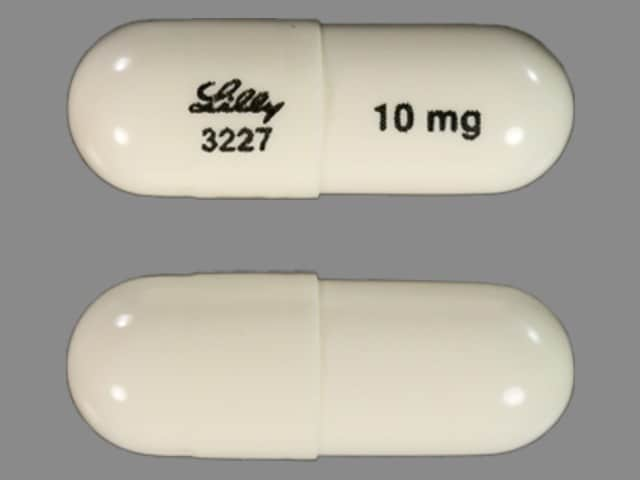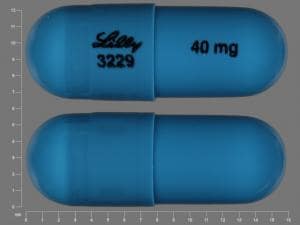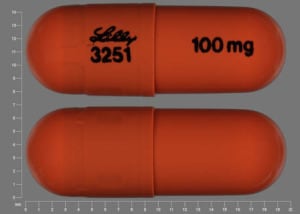What is Strattera?
Strattera is a selective norepinephrine reuptake inhibitor medicine. It is used for the treatment of attention deficit and hyperactivity disorder (ADHD). Strattera may help increase attention and decrease impulsiveness and hyperactivity in patients with ADHD.
Strattera should be used as a part of a total treatment program for ADHD that may include counseling or other therapies.
Strattera has not been studied in children less than 6 years old.
What is the most important information I should know about Strattera?
The following have been reported with use of Strattera:
1. Suicidal thoughts and actions in children and teenagers:
Children and teenagers sometimes think about suicide, and many report trying to kill themselves. Results from Strattera clinical studies with over 2200 child or teenage ADHD patients suggest that some children and teenagers may have a higher chance of having suicidal thoughts or actions. Although no suicides occurred in these studies, 4 out of every 1000 patients developed suicidal thoughts. Tell your child or teenager's doctor if your child or teenager (or there is a family history of):
- has bipolar illness (manic-depressive illness)
- had suicide thoughts or actions before starting Strattera
The chance for suicidal thoughts and actions may be higher:
- early during Strattera treatment
- during dose adjustments
Prevent suicidal thoughts and action in your child or teenager by:
- paying close attention to your child or teenager's moods, behaviors, thoughts, and feelings during Strattera treatment
- keeping all follow-up visits with your child or teenager's doctor as scheduled
Watch for the following signs in your child or teenager during Strattera treatment:
- anxiety
- agitation
- panic attacks
- trouble sleeping
- irritability
- hostility
- aggressiveness
- impulsivity
- restlessness
- mania
- depression
- suicide thoughts
Call your child or teenager's doctor right away if they have any of the above signs, especially if they are new, sudden, or severe. Your child or teenager may need to be closely watched for suicidal thoughts and actions or need a change in medicine.
2. Severe liver damage:
Strattera can cause liver injury in some patients. Call your doctor right away if you or your child has the following signs of liver problems:
- itching
- right upper belly pain
- dark urine
- yellow skin or eyes
- unexplained flu-like symptoms
3. Heart-related problems:
- sudden death in patients who have heart problems or heart defects
- stroke and heart attack in adults
- increased blood pressure and heart rate
Tell your doctor if you or your child has any heart problems, heart defects, high blood pressure, or a family history of these problems. Your doctor should check you or your child carefully for heart problems before starting Strattera.
Your doctor should check your blood pressure or your child's blood pressure and heart rate regularly during treatment with Strattera.
Call your doctor right away if you or your child has any signs of heart problems such as chest pain, shortness of breath, or fainting while taking Strattera.
4. New mental (psychiatric) problems in children and teenagers:
- new psychotic symptoms (such as hearing voices, believing things that are not true, being suspicious) or new manic symptoms
Call your child or teenager's doctor right away about any new mental symptoms because adjusting or stopping Strattera treatment may need to be considered.
Who should not take Strattera?
Strattera should not be taken if you or your child:
- are taking or have taken within the past 14 days an anti-depression medicine called a monoamine oxidase inhibitor or MAOI. Some names of MAOI medicines are Nardil (phenelzine sulfate), Parnate (tranylcypromine sulfate) and Emsam (selegiline transdermal system).
- have an eye problem called narrow angle glaucoma
- are allergic to anything in Strattera. See the end of this Medication Guide for a complete list of ingredients.
- have or have had a rare tumor called pheochromocytoma.
What should I tell my healthcare provider before taking Strattera?
Strattera may not be right for you or your child. Before starting Strattera tell your doctor or your child's doctor about all health conditions (or a family history of) including:
- have or had suicide thoughts or actions
- heart problems, heart defects, irregular heart beat, high blood pressure, or low blood pressure
- mental problems, psychosis, mania, bipolar illness, or depression
- liver problems
Tell your doctor if you or your child is pregnant, planning to become pregnant, or breastfeeding.
Can Strattera be taken with other medicines?
Tell your doctor about all the medicines that you or your child takes including prescription and nonprescription medicines, vitamins, and herbal supplements. Strattera and some medicines may interact with each other and cause serious side effects. Your doctor will decide whether Strattera can be taken with other medicines.
Especially tell your doctor if you or your child takes:
- asthma medicines
- anti-depression medicines including MAOIs
- blood pressure medicines
- cold or allergy medicines that contain decongestants
Know the medicines that you or your child takes. Keep a list of your medicines with you to show your doctor and pharmacist.
Do not start any new medicine while taking Strattera without talking to your doctor first.
How should Strattera be taken?
- Take Strattera exactly as prescribed. Strattera comes in different dose strength capsules. Your doctor may adjust the dose until it is right for you or your child.
- Do not chew, crush, or open the capsules. Swallow Strattera capsules whole with water or other liquids. Tell your doctor if you or your child cannot swallow Strattera whole. A different medicine may need to be prescribed.
- Avoid touching a broken Strattera capsule. Wash hands and surfaces that touched an open Strattera capsule. If any of the powder gets in your eyes or your child's eyes, rinse them with water right away and call your doctor.
- Strattera can be taken with or without food.
- Strattera is usually taken once or twice a day. Take Strattera at the same time each day to help you remember. If you miss a dose of Strattera, take it as soon as you remember that day. If you miss a day of Strattera, do not double your dose the next day. Just skip the day you missed.
- From time to time, your doctor may stop Strattera treatment for a while to check ADHD symptoms.
- Your doctor may do regular checks of the blood, heart, and blood pressure while taking Strattera. Children should have their height and weight checked often while taking Strattera. Strattera treatment may be stopped if a problem is found during these check-ups.
- If you or your child takes too much Strattera or overdoses, call your doctor or poison control center right away, or get emergency treatment.
What are possible side effects of Strattera?
See “What is the most important information I should know about Strattera?” for information on reported suicidal thoughts and actions, other mental problems, severe liver damage, and heart problems.
Other serious side effects include:
- serious allergic reactions (call your doctor if you have trouble breathing, see swelling or hives, or experience other allergic reactions)
- slowing of growth (height and weight) in children
- problems passing urine including:
- trouble starting or keeping a urine stream
- cannot fully empty the bladder
Common side effects in children and teenagers include:
- upset stomach
- decreased appetite
- nausea or vomiting
- dizziness
- tiredness
- mood swings
Common side effects in adults include:
- constipation
- dry mouth
- nausea
- decreased appetite
- dizziness
- sexual side effects
- problems passing urine
Other information for children, teenagers, and adults:
- Erections that won't go away (priapism) have occurred rarely during treatment with Strattera. If you have an erection that lasts more than 4 hours, seek medical help right away. Because of the potential for lasting damage, including the potential inability to have erections, priapism should be evaluated by a doctor immediately.
- Strattera may affect your ability or your child's ability to drive or operate heavy machinery. Be careful until you know how Strattera affects you or your child.
- Talk to your doctor if you or your child has side effects that are bothersome or do not go away.
This is not a complete list of possible side effects. Call your doctor for medical advice about side effects. You may report side effects to FDA at 1-800-FDA-1088.
Strattera Images
General information about Strattera
Medicines are sometimes prescribed for purposes other than those listed in a Medication Guide. Do not use Strattera for a condition for which it was not prescribed. Do not give Strattera to other people, even if they have the same condition. It may harm them.
This Medication Guide summarizes the most important information about Strattera. If you would like more information, talk with your doctor. You can ask your doctor or pharmacist for information about Strattera that was written for healthcare professionals. For more information about Strattera call 1-800-Lilly-Rx (1-800-545-5979) or visit www.Strattera.com.
How should I store Strattera?
- Store Strattera in a safe place at room temperature, 59 to 86°F (15 to 30°C).
- Keep Strattera and all medicines out of the reach of children.
What are the ingredients in Strattera?
Active ingredient: atomoxetine hydrochloride.
Inactive ingredients: pregelatinized starch, dimethicone, gelatin, sodium lauryl sulfate, FD&C Blue No.2, synthetic yellow iron oxide, titanium dioxide, red iron oxide, and edible black ink.








